Any objective analysis of Australia’s international education sector would conclude that enrolment numbers are too high.
Before the pandemic, Australia had easily the highest concentration of international students globally, as illustrated below.
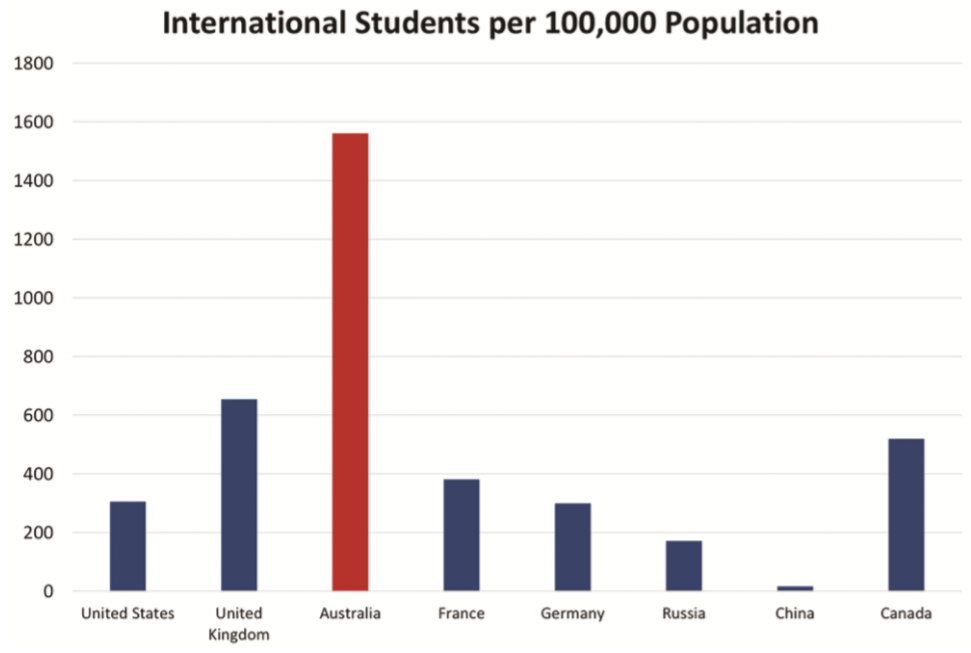
Source: Salvatore Babones (2019)
As of August 2024, Australia had just under 970,000 international students enrolled, up nearly 130,000 on 2019 enrolment levels.
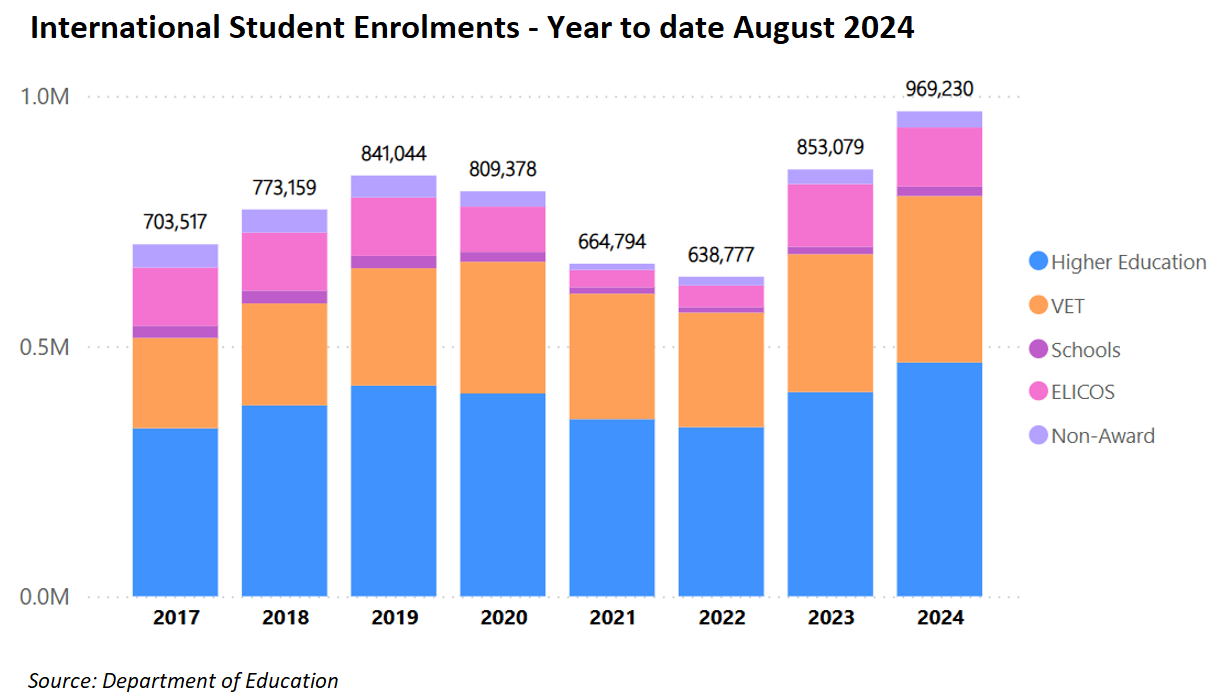
Graduate visa numbers have also ballooned, more than doubling from 2019 levels to nearly 230,000 as of September 2024.
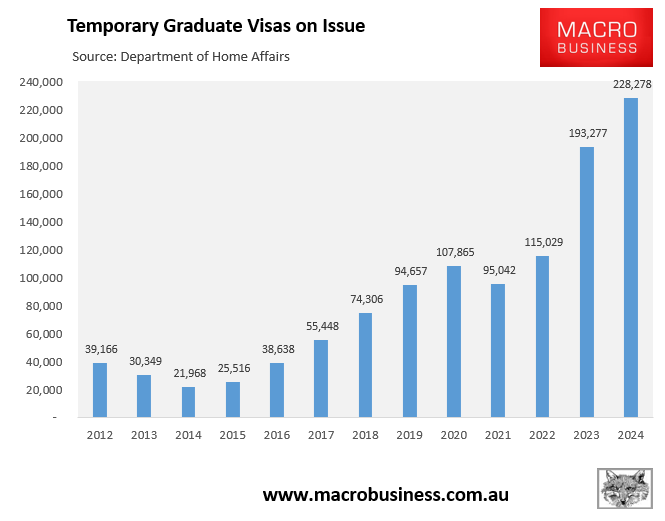
The number of former international students transitioning to temporary bridging visas has also ballooned by more than 100,000 over the past two years.
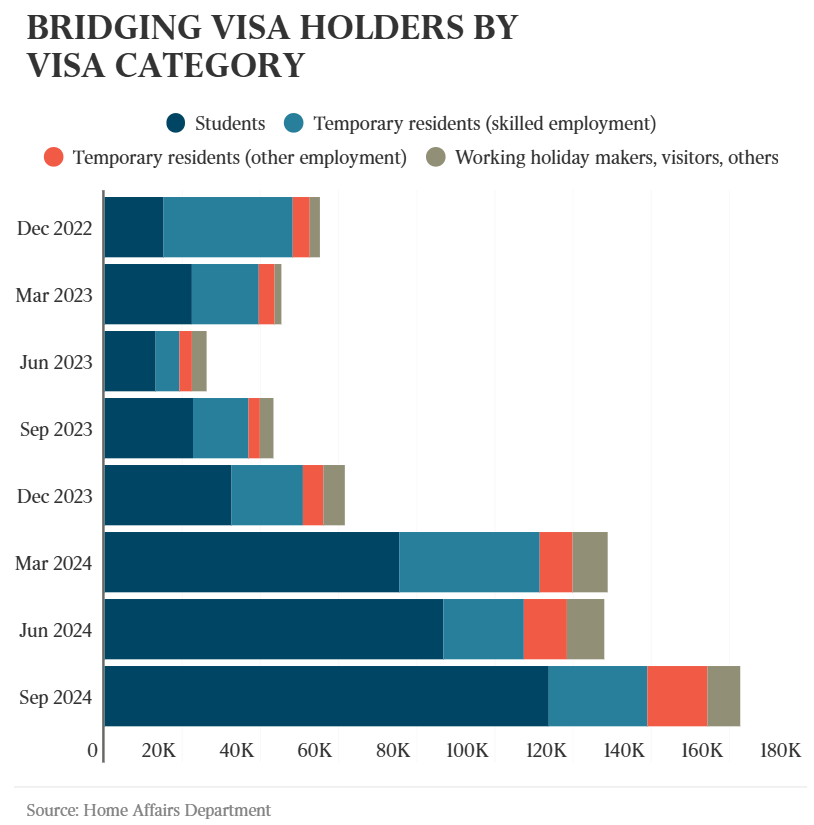
The surge in international student enrolments has unambiguously contributed to the nation’s rental crisis and a lack of infrastructure in our major cities. It has also driven the decline in pedagogical standards throughout the tertiary education sector.
For example, The Guardian reported in August that Australian institutions have handed out degrees like candy to students who do not speak functional English and do not grasp the coursework.

The Guardian followed up by exposing rampant cheating among international students at our universities.
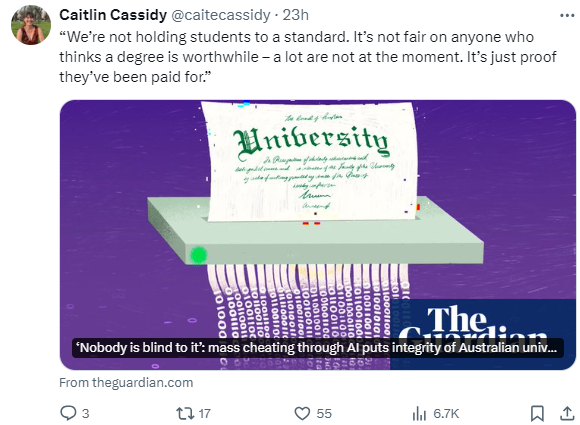
ABC Radio reported that economics courses at the University of Melbourne were held in Mandarin.
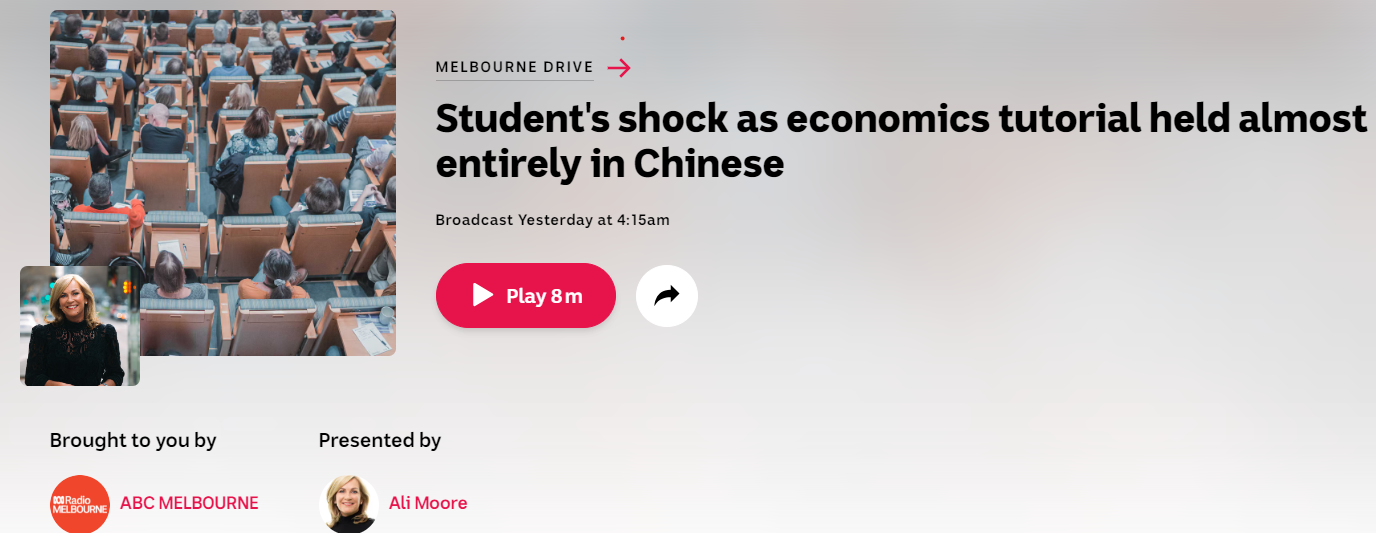
Meanwhile, the Australian reported that “dozens of dodgy training providers have been shut down over ties to organised crime, fraud and bogus qualifications”.
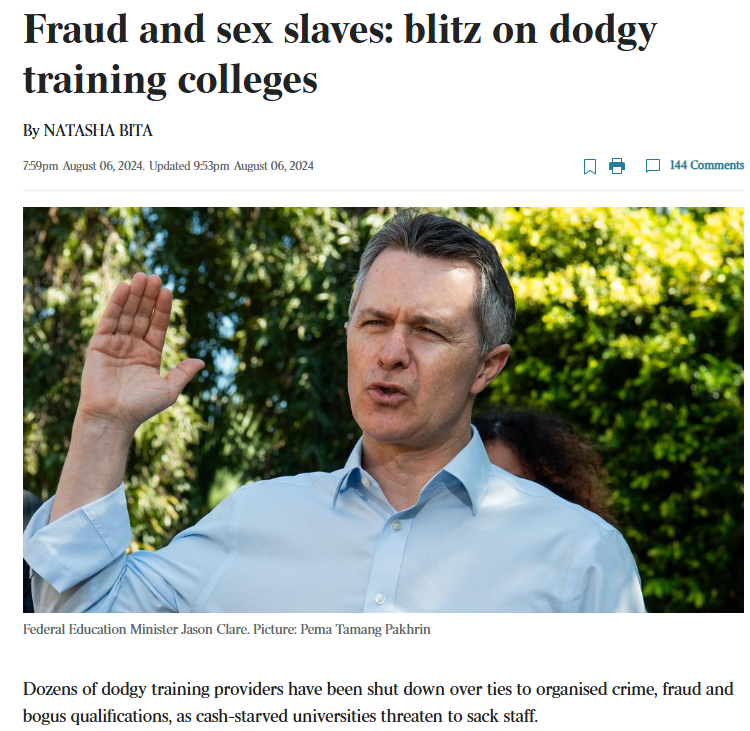
These reports all happened in the month of August and followed countless similar reports spanning more than a decade, including Four Corner’s 2019 report, entitled Cash Cows.
Four Corners examined how the growing volume of international students had harmed Australia’s higher education system. That volume is obviously much higher now.
Again, any honest evaluation of the international education industry would conclude that the surge in student numbers has hurt Australia’s tertiary education system, jeopardising the country’s productivity and living standards.
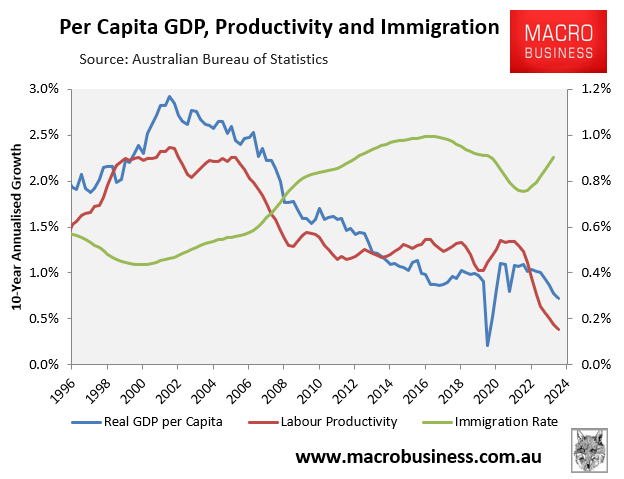
With this background in mind, it was alarming to read that the Coalition will block Labor’s caps on international student numbers:
The Coalition will oppose the Albanese Labor Government’s chaotic and confused education bill which will fail to fix the migration and housing crisis of the Government’s own making.
The Government’s opening of the floodgates to record levels of international students is fuelling the housing crisis and causing unprecedented chaos in the international education sector.
Since the Albanese Government was elected, the number of international students studying in Australia has almost doubled, from 474,493 international students in May of 2022 to more than 800,000 today…
Labor’s piecemeal approach does nothing to address the structural issues it has created. The proposed cap in the Education Bill before Parliament will not even touch the sides of this problem.
We cannot support measures which will only serve to compound this crisis of the government’s making. Based on their record so far we have absolutely no confidence the Government is capable of fixing its immigration mess.
Labor simply cannot be trusted on immigration.
Only a Coalition Government can deliver the decisive action needed to reduce migration so that our housing and infrastructure can catch up.
Education Minister Jason Clare said the opposition’s looming vote against the bill “will destroy Peter Dutton’s credibility on immigration”.
“Never in my life did I think Peter Dutton would be on a unity ticket with the Greens on immigration”, he said.
On the face of it, the Coalition’s position contradicts its promise to lower net overseas migration.
However, it could also be that the Coalition plans to implement other restrictions on the sector that would restrict student numbers without blunt caps. These measures could include:
- Significantly tightening English-language standards and requiring prospective students to complete entrance examinations before being permitted to study in Australia.
- Significantly increasing financial requirements, with funds paid into an escrow account before arriving in Australia.
- Reducing the number of hours that international students are allowed to work and severing the direct link between study, work, and permanent residency.
- Given that Australian universities are non-profit entities that currently do not pay taxes, imposing a levy on international students to ensure that Australians receive a financial cut from the trade.
These types of reforms are preferable to blunt caps on enrolment numbers.
They would limit the number of international students while increasing overall quality.
They would also transform international education into a genuine export business, improve graduate quality (and productivity), and reduce net overseas migration and demands on housing and infrastructure.

